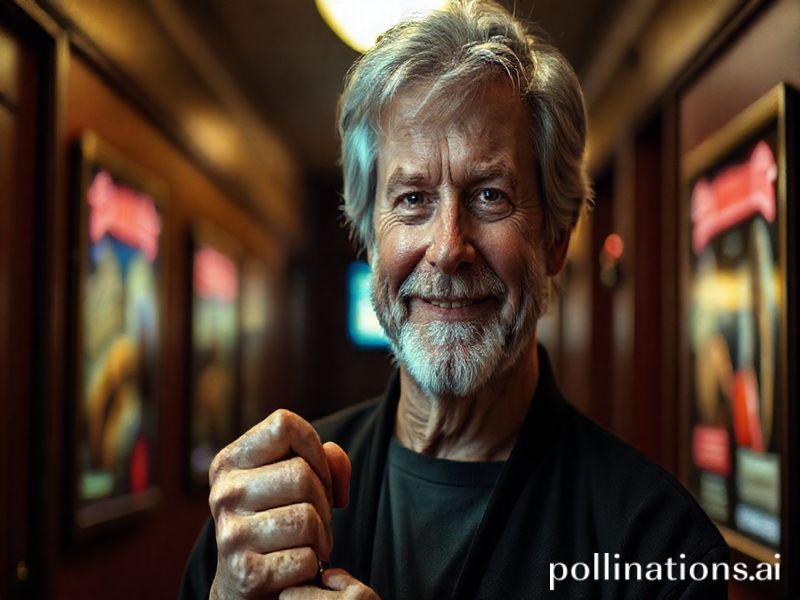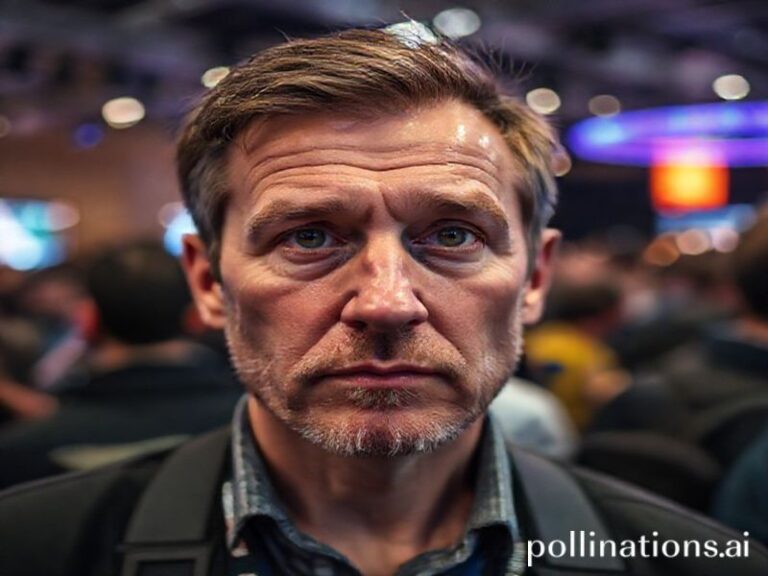mark hamill
Mark Hamill, the Man Who Weaponized Nostalgia and Accidentally Became the Internet’s Guilt-Free Dad
By Our Correspondent in Low-Earth Orbit
Look up at the right moment—somewhere between the malfunctioning Chinese booster and Elon’s latest swarm of broadband pigeons—and you’ll see him: the lone Jedi emoji, orbiting the planet like a sarcastic satellite. Mark Hamill, age 72 going on 19, has transcended the trifling borders of nation-states to become a sort of global emotional infrastructure. Every time a dictator tweets, Hamill claps back with a lightsaber GIF. Every time a Ukrainian hospital needs morale, he records a 30-second message in Luke Skywalker’s earnest register and the clip ricochets from Kyiv to Kansas faster than you can say “These aren’t the sanctions you’re looking for.” It’s soft-power cosplay, and Washington can only watch, envious, from the Situation Room.
How did a kid from Oakland who once voiced a talking Joker doll become a one-man NATO of wholesome retweets? The short answer: the world ran out of real heroes, so we elected a fictional one. The longer answer involves Disney market share, aging millennials bargaining with their childhoods, and a global attention economy that pays in dopamine. Hamill’s genius lies in understanding that fame is now a renewable resource—mine the past, refine it into memes, export it worldwide. Last year, UNICEF reported a 19 % spike in donations whenever Hamill posted a selfie wearing an “I Am Your Father” apron. Coincidence? Tell that to the sales team at the Star Wars Holiday Special commemorative dinnerware factory in Guangzhou.
Across Europe, politicians have learned to fear the Hamill Ratio: the precise moment at which his quote-tweet outweighs their entire press office. When the Italian far-right tried to co-opt Luke’s heroic myth for a campaign ad, Hamill responded with a bilingual thread—English and Italian—explaining that lightsabers are, in fact, plasma-based immigration tools for welcoming droids of all origins. The ad vanished overnight; the tweets remain, archived by the EU as a cautionary folktale. Meanwhile, Japanese VTuber agencies now employ “Hamill-style sincerity consultants” to coach their anime avatars on how to appear genuinely decent rather than merely kawaii. The consultant fee? Two vintage 1978 vinyl capes and a signed photo of the Death Star trench run.
The darker joke is that Hamill’s moral clarity works only because he is a brand, not a bureaucracy. When the U.S. State Department lectures other countries on human rights, everyone rolls their eyes; when Luke Skywalker does it, the same governments line up for selfies. Soft power used to require aircraft carriers; now it requires a blue checkmark and a mastery of GIFs. The Pentagon’s latest white paper—leaked by a bored intern—lists “Hamill-Class Influencers” as a Tier-1 strategic asset, somewhere between F-35s and whatever the Swedes are doing with their submarines. The irony, of course, is that Hamill himself would probably roast the paper on TikTok while wearing a thrift-store Ewok hoodie.
If you zoom out, the phenomenon starts to look like post-imperial outsourcing: the United States, having exhausted its credibility, rents the moral authority of its own pop-culture fossils. France still has wine, China still has supply chains, but America’s hottest export is a septuagenarian actor reminding everyone not to be terrible. It’s cheaper than foreign aid and considerably more effective than drone strikes. Analysts in Brussels call it “weaponized nostalgia”; analysts in Moscow call it “cultural napalm.” Both are wrong. It’s just Hamill, tweeting “Stay safe, Earthlings” while the planet burns just slowly enough for us to screenshot it.
Conclusion? Mark Hamill is what happens when a franchise grows a conscience and accidentally becomes a superpower. He won’t save the world—he’s busy recording voice lines for a Ukrainian dub of Robot Chicken—but he’ll keep flickering across our feeds like a benevolent poltergeist, reminding us that somewhere between the trade wars and the heat death of the biosphere, we once believed farm boys could blow up fascist moons. And if that belief is now a commodity, well, at least it’s carbon-neutral.







